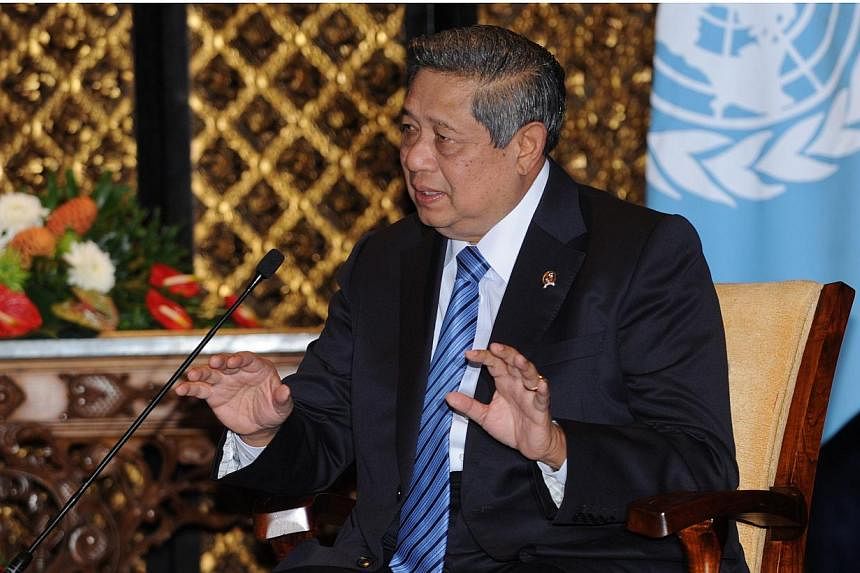JAKARTA (Reuters) - Indonesia's outgoing president has spoken out in favour of retaining direct elections for governors and mayors, saying democratic reforms had to be protected.
Indonesia's Parliament has proposed doing away with direct elections for provincial, district and city leaders, saying legislative assemblies in those jurisdictions should fill those posts. But critics say that doing away with such elections would damage the development of democracy and entrench the authority of old elites and their patronage politics. A new generation of politicians, including President-elect Joko Widodo, has risen to prominence by winning direct elections for regional posts, introduced in 2005.
President Susilo Bambang Yudhoyono backed keeping the direct elections in an interview late on Sunday, which was posted on his ruling party's YouTube channel. "If we go back to our choices, the fruit of the reforms we have been implementing for the past several years, certainly we must safeguard and maintain direct elections of local leaders like the direct election of the president," he said.
"Whatever the system, there will be advantages and disadvantages," he added. "But having led the country for 10 years, if we wanted to implement direct elections, then that's what we must safeguard. There are flaws, that's what we have to fix fundamentally."
Mr Joko is widely seen as a product of Indonesia's democratic transition, which has included the direct election of district leaders.
The former furniture businessman, set to take office on Oct 20, will be the first president without an elite or military background.
He was mayor of the city of Solo on Java island and later became governor of the capital, Jakarta.
Mr Joko, commonly known by his nickname Jokowi, told reporters last week he attributed his rise to direct elections. "(Only) if it's up to the people to choose can those without money win," he said.
Indonesia, home to the world's largest Muslim population, has embraced democratic reform since the downfall of autocratic leader Suharto in 1998.
This year's presidential election, the closest-ever in Indonesia's history, went off without major violence or military intervention.
The smooth transition was a contrast to developments in other South-east Asian countries such as Thailand and Cambodia, which have both seen political turmoil this year.
A Bill to scrap the direct elections has strong support in Parliament but a public outcry against it has forced the government to reconsider its position. Some opinion polls show that up to 91 per cent of Indonesians favour direct elections.

